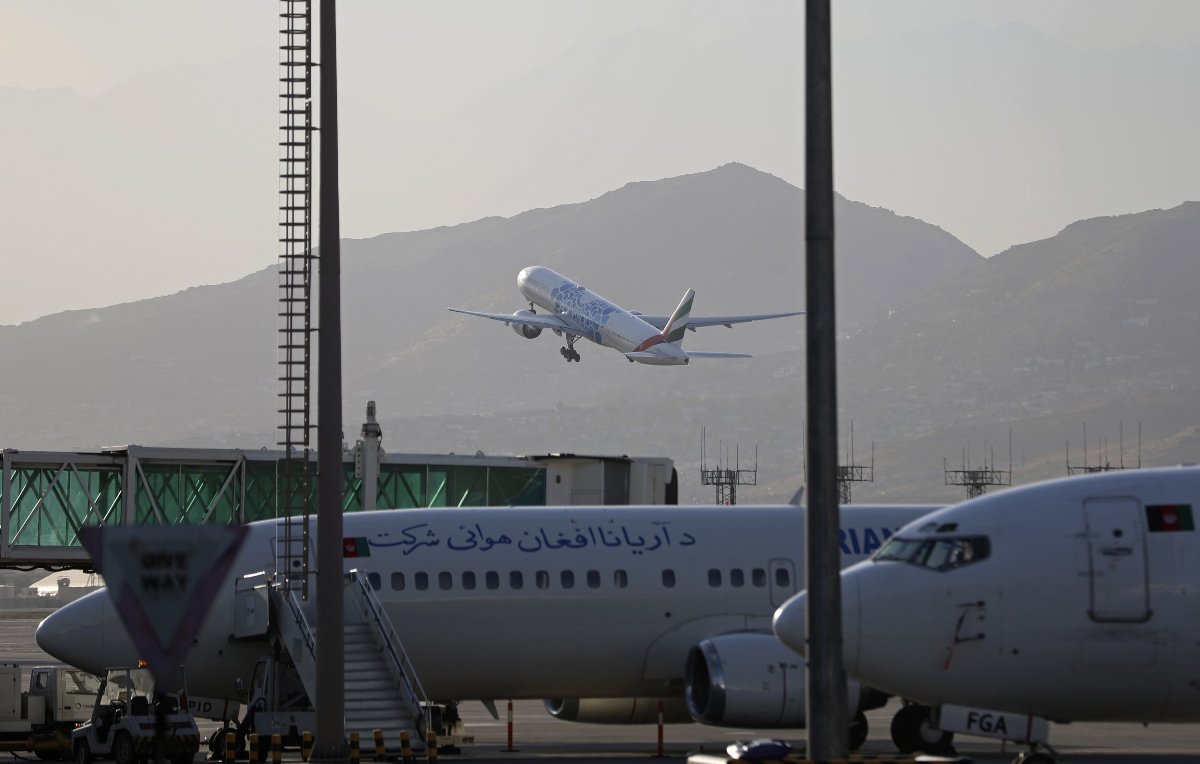AhlulBayt News Agency (ABNA): Ahmadullah Wasiq, the group's press secretary, had earlier said that first flight from the UAE to Afghanistan was to land in Kabul. He continued that senior UAE officials were aboard the plane and would meet with the Taliban officials.
Other sources have not yet confirmed who were the UAE officials arrived in Afghanistan to meet with the Taliban, but if they did, the UAE will be the first Arab country whose officials entered Taliban-held Afghanistan.
This is at a time when Qatar has had the closest relationship with the Taliban among Arab countries so far, and even the first flight to land at Kabul airport after the US departure was a Qatari plane.
However, after Qatar it is the UAE that is striving to establish a close relationship with the Taliban.
This means that part of Afghanistan competition field is held by the Persian Gulf Arab states.
Qatar; traditional Taliban host
Qatar has been investing on the Taliban for years. The insurgent group opened its political office in Doha about 10 years ago, and since then, most of the its talks either with Kabul government or the Americans have been held in Qatar.
Qatar has played as a neutral party in the Afghanistan developments, but is it believable that a country that provided the Taliban with luxurious embassy-like building with various facilities for 10 years can now claim neutrality? The fact is that Qatar is the most important Arab ally of the Taliban to strengthen the group and count down to see its power seizure. Even after the US withdrawal from Afghanistan, first plane to land in Kabul was Qatari, and Kabul airport is being set up again by Qatari experts.
Doha even managed to modify the hard-line stances of bigger brother Ankara towards the Taliban. President Recep Tayyip Erdogan of Turkey last month attacked the group hard and sought to take control of Kabul airport, officially Hamid Karzai International Airport, after the US and NATO withdrawal. Taliban's response to the idea was strong opposition. However, Ankara softened its tone towards the group and even Erdogan met with the Taliban leaders. Doha seems to have played an undeniable role in this convergence.
In his latest comments, the Qatari FM called on the world to establish engagement with the Taliban, adding that Doha will do its best to solidify the Taliban position in Kabul. Still, Qatar has other Arab rivals in Afghanistan.
Turkey-Qatar-Pakistan triangle vs. Saudi-Emirati alliance in Afghanistan
Although Qatar initially saw itself without an Arab rival in the field of developments in Afghanistan, it seems that its traditional rival, the UAE, is now trying to challenge its sway over the Taliban. According to Taliban officials, UAE officials, who were not identified by the group, have arrived in Kabul to meet with Taliban leaders.
The UAE has no warm relationship with Qatar and tries to get a foothold in a Taliban-ruled Afghanistan.
The UAE was one of the few countries to recognize the Taliban government during Taliban rule in the 1990s, and now, with Qatar in the lead, Emirati officials are realizing that they are lagging behind their Qatari rival.
But whether or not the Taliban will allow the Emirates to flex its muscles in the Central Asian country depends on the approach of other Arab country, Saudi Arabia.
The Taliban have the same view of the UAE and Saudi Arabia, and if the Saudis can work with the Taliban, the UAE will be able to do the same, just as the UAE along with Saudi Arabia recognized the Taliban rule in the 1990s.
However, both Riyadh and Abu Dhabi face two other rivals in the Afghanistan: Pakistan and Turkey. Pakistan may show self-restraint towards the UAE's moves in Afghanistan, but Turkey has always proven that it hardly copes with the UAE and Saudi Arabia in regional rivalries.
While the Turkey-Qatar-Pakistan triangle has substantial influence in Taliban Afghanistan, conditions are presently strict for the UAE and Saudi Arabia, and odds are the Emiratis cannot cozy up to the Taliban like their relationship in the 1990s.
Additionally, the Taliban-Saudi relationship is frayed. In 1998, Saudi Arabia asked the group to hand over Al-Qaeda leader Osama bin Ladan, a Saudi national, to the Arab kingdom but the Taliban refused. This disobedience damaged the Saudi-Taliban ties. Their relations even experienced fracture after 9/11 attacks. Immediately after the attacks, Riyadh and Abu Dhabi cut off diplomatic ties to Taliban-ruled Afghanistan. The Saudis at the time even accused the Taliban of tarnishing the Islam name by harboring terrorists. Now the Taliban look at Saudi Arabia and the UAE while remembering those days.
Even this month, when the Taliban took control of Kabul, the Saudi Foreign Ministry cautiously issued a statement saying, "the Kingdom of Saudi Arabia supports Afghan people's decision made without meddling." So, it does not seem the Saudis will rush to resume ties with their former ally.
The Saudi-Taliban chill is hard to break this soon, and it will impact the relationship with the UAE. Despite the attempt to rebuild ties through sending officials to Kabul, Abu Dhabi will find this path bumpy.
/129

